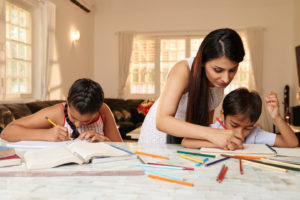France Cracks Down on Homeschooling with New Laws
France passed two new laws over the summer to combat extremism—laws which include severe restrictions on homeschooling. One law states that homeschooling will “only be authorized for reasons of…

France passed two new laws over the summer to combat extremism—laws which include severe restrictions on homeschooling. One law states that homeschooling will “only be authorized for reasons of health, disability, artistic or sports practice, family homelessness, remoteness of an establishment, and also in the event of a ‘situation specific to the child motivating the educational project’.”
While the law seems to target terrorism and Islamic extremism, parts of the law are vague, sparking concerns that it could be misapplied by new governments in the future. Anne-Sophie Simpere, Advocacy Officer at Amnesty International France, said:
Often one of the government’s arguments is that these restrictive measures were used reasonably. But these tools are here to stay, regardless of which government is in power, and there is a lot of room for interpretation.
While homeschooling is somewhat less common in France than in the United States, both countries have seen growth in homeschooling numbers. In 2020, France had an estimated 50,000 homeschooling children, up from 41,000 in 2019 and near 35,000 in 2018.
France’s ‘Jules Ferry Laws’ of the 1880s have been seen by many as guaranteeing the right of parents to choose their children’s education and protect the right to homeschool. When the new law was being considered, France’s Conseil d’Etat determined that a homeschool ban would be incompatible with the French Constitution.
Claudia Renau, a homeschooling mother of three, said:
The need for an authorisation takes away our basic freedom to choose whether to educate our children at home or at school. Many of us, me included, choose from the outset to homeschool, so our children never set foot in a classroom. If we have to ask for authorisation they would have to go to school until we received permission.
Laws that were already in place in France regulate homeschooling and require those who do so give regular updates. Andre Stern, a French homeschooling advocate, defended homeschooling’s place in France’s ‘pluralistic society’:
Because we must not forget that the vast majority of those who practice home education, of which we are a part, are anything but separatists or clandestine: we do not hide, we declare our mode of instruction and are controlled every year by the Ministry of Education and by Municipal Services. Far from being marginalized, far from being ‘outside the system’, we are one of the facets of its plurality.



